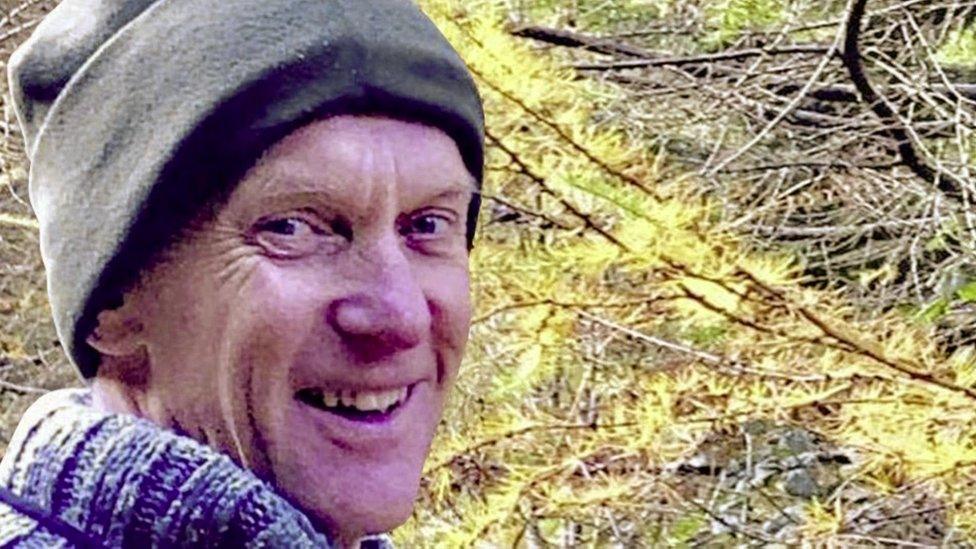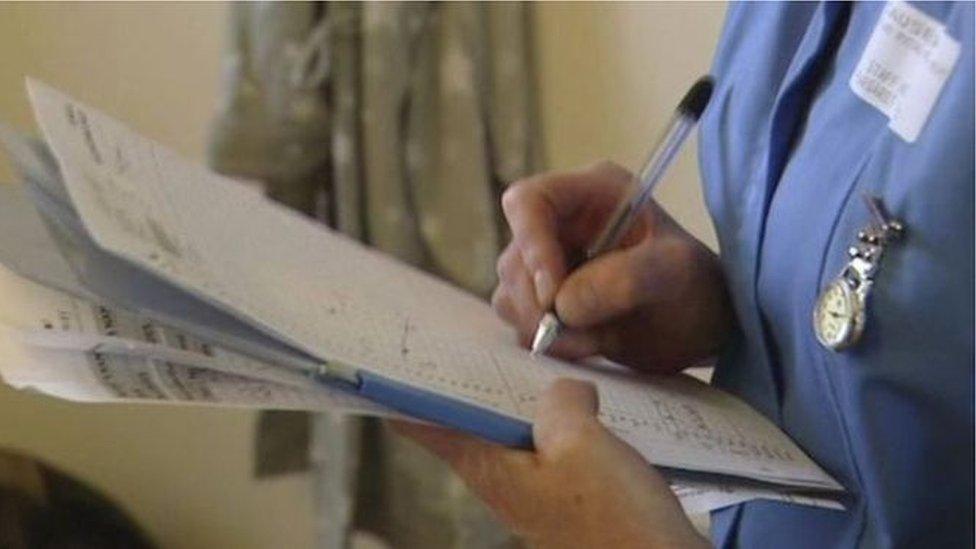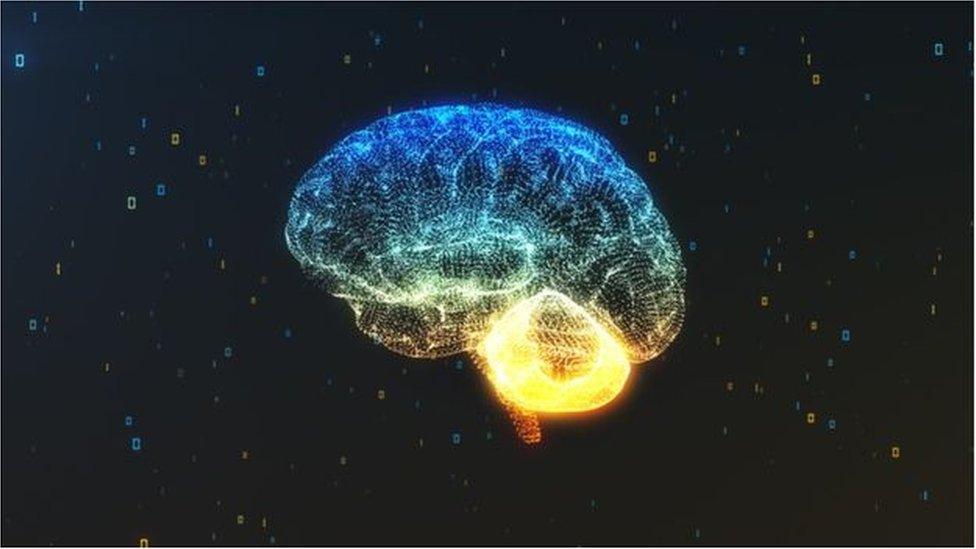Michael Watt: Removal of neurologist from medical register quashed
- Published

Relatives of Dr Michael Watt's patients protested outside the High Court in Belfast on Friday
A decision to allow a neurologist to voluntarily remove himself from the medical register has been quashed.
Dr Michael Watt was at the centre of Northern Ireland's biggest ever recall of patients over concerns about his clinical practice.
The Medical Practitioners Tribunal Service (MPTS) allowed him to voluntarily remove himself in 2021.
It meant he would not face a public hearing about any fitness to practise issues.
However, two former patients of Dr Watt challenged the decision in a judicial review at the High Court in Belfast.
Mr Justice McAlinden said the issue at the heart of the case, brought by Danielle O'Neill and Michael McHugh, was whether the MPTS had the jurisdiction to deal with the application in the matter that it did.
"I am utterly convinced that the initial hearing and I use that word carefully... the original hearing that was heard in this case was heard without jurisdiction as an application for voluntary erasure had not been made at that stage," the court heard.
"It certainly didn't have jurisdiction to do so at the second, reconvened hearing because there had been no legitimate first hearing, the hearing hadn't commenced.
"If it hadn't commenced, the hearing had not begun then the hearing has no jurisdiction to deal with that."
'Monumental for victims'
Ms O'Neill said the decision marked a "monumental day for patients" and was delighted by the judge's decision.
"Today there is some form of relief, but this is only the first step that this isn't the end this is only the beginning," she told BBC's Evening Extra programme.
"We're going to be scarred with the trauma of this for the rest of our lives."
Former patients of Dr Watt have been left with zero confidence in the medical profession and the regulator, Ms O'Neill added.
Solicitor Claire McKeegan described the ruling as a "huge day" for Dr Watt's former patients.
"These people deserve answers, truth and all the accountability that any court can bring and I'm just delighted for them today."
Ms McKeegan said by being voluntary struck off the register, Dr Watt avoided the public scrutiny of "catastrophic failings".
"We like to think that after the judgement of the court today, the MPTS will think twice in allowing Michael Watt to get out of this again."

Dr Michael Watt worked at the Royal Victoria Hospital as a neurologist
A solicitor for Michael McHugh said the ruling was a "revelation with regards to the need for those who are responsible for safeguarding the medical profession to be entirely scrupulous when applying the rigor of the law".
Striking down the voluntary erasure order made by the tribunal, Mr McAlinden said Dr Watt will have to make a fresh application.
"That application will have to be considered and determined by the GMC (General Medical Council) in strict accordance by the statutory framework that they are bound to comply with."
Largest recall of its kind
An inquiry into Dr Watt's clinical practice at the Royal Victoria Hospital found the Belfast Trust failed to intervene quickly enough.
The Independent Neurology Inquiry concluded that the combined effect of the failures ensured that patterns in the consultant's work were missed for a decade.
More than 5,000 former patients of neurologist Dr Michael Watt were invited to have their cases examined for possible misdiagnoses.
Among the conditions being treated were stroke, Parkinson's disease and multiple sclerosis (MS).
It concluded the combined effect of the failures ensured patterns in the former consultant's work were missed for a decade.
It also found failures were not confined to the Belfast Trust and communications between different organisations and management levels were inadequate.
- Published21 June 2022

- Published21 June 2022

- Published20 April 2021

- Published19 December 2019
